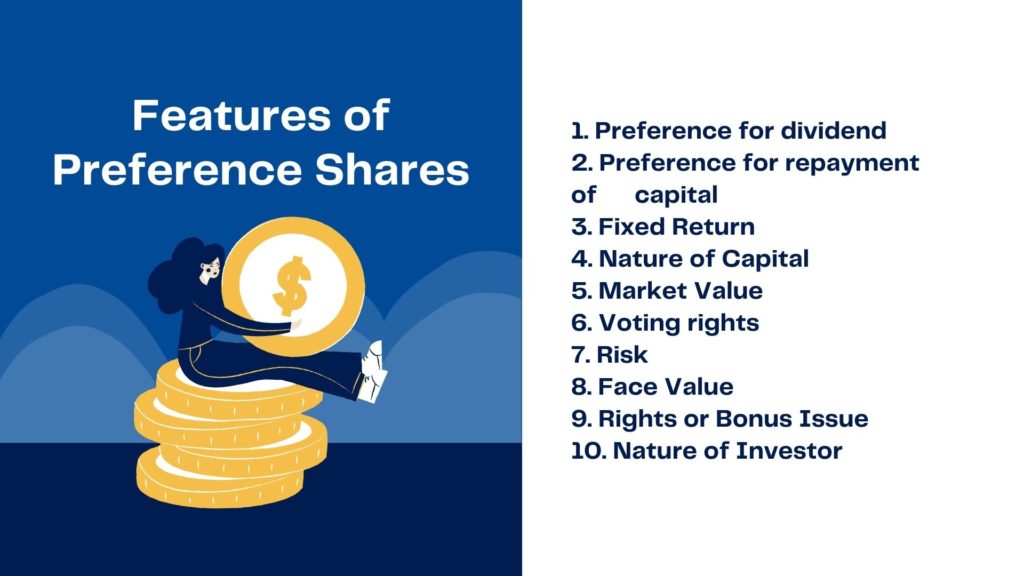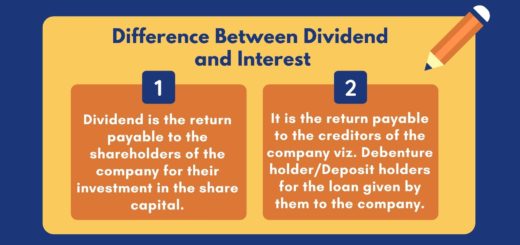Top 10 Features of Preference Shares – Scholarszilla
Features of Preference Shares

What are Preference Shares?
Preference Shares: As the name indicates, these shares have certain preferential rights distinct from those attached to equity shares.
The shares which carry the following preferential rights are termed as preference shares :
a) A preferential right as to payment of dividend during the lifetime of company.
b) A preferential right as to the return of capital in the event of winding up of company.
The holder of preference share have a prior right to receive a fixed rate of dividend before any dividend is paid to equity shares. The rate of dividend is prescribed at the time of issue.
Features of Preference Shares
1) Preference for dividends:
Preference shares have the first charge on the distributable amount of annual net profit. The dividend is payable to preference shareholders before it is paid to equity shareholders.
2) Preference for repayment of capital:
Preference shareholders have a preference over equity shareholders regarding the return of capital when the company is liquidated. It saves preference shareholders from capital losses.
3) Fixed Return:
These shares carry dividend at fixed rate. The rate of dividend is pre-determined at the time of issue. It may be in the form of fixed sum or may be calculated at fixed rate. The preference shareholders are entitled to dividend which can be paid only out of profits. If the directors, in financial crisis, decide not to pay dividend, the preference shareholders have no claim for dividend.
4) Nature of Capital:
Preference shares do not provide permanent share capital. They are redeemed after certain period of time. A company can not issue irredeemable preference shares. Preference capital is generally raised at a later stage, when the company gets established. Preference share capital is safe capital as the rate of dividend and market value does not fluctuate.
5) Market Value:
The market value of preference share does not change as the rate of dividend payable to them is fixed. The capital appreciation is considered to be low as compared with equity shares.
6) Voting rights:
The preference shares do not have normal voting rights. They do not enjoy right of control on the affairs of the company. They have voting rights on any resolution of the company directly affecting their rights e.g.: Change in terms of repayment of capital, dividend payable to them are in arrears for last two
consecutive years, etc.
7) Risk:
The investors who are cautious, generally purchase preference shares. Safety of capital and steady return on investment are advantages attached with preference shares. These shares are boon for shareholders during depression period when interest rate is continuously falling.
8) Face Value:
The face value of preference shares is relatively higher than that of equity shares. They are normally issued at a face value of Rs. 100/-.
9) Rights or Bonus Issue:
Preference shareholders are not entitled for Rights or Bonus issues.
10) Nature of Investor:
Preference shares attract moderate type of investors. Investors who are conservative, cautious, interested in safety of capital and who want steady return on investment generally purchase preference shares.


